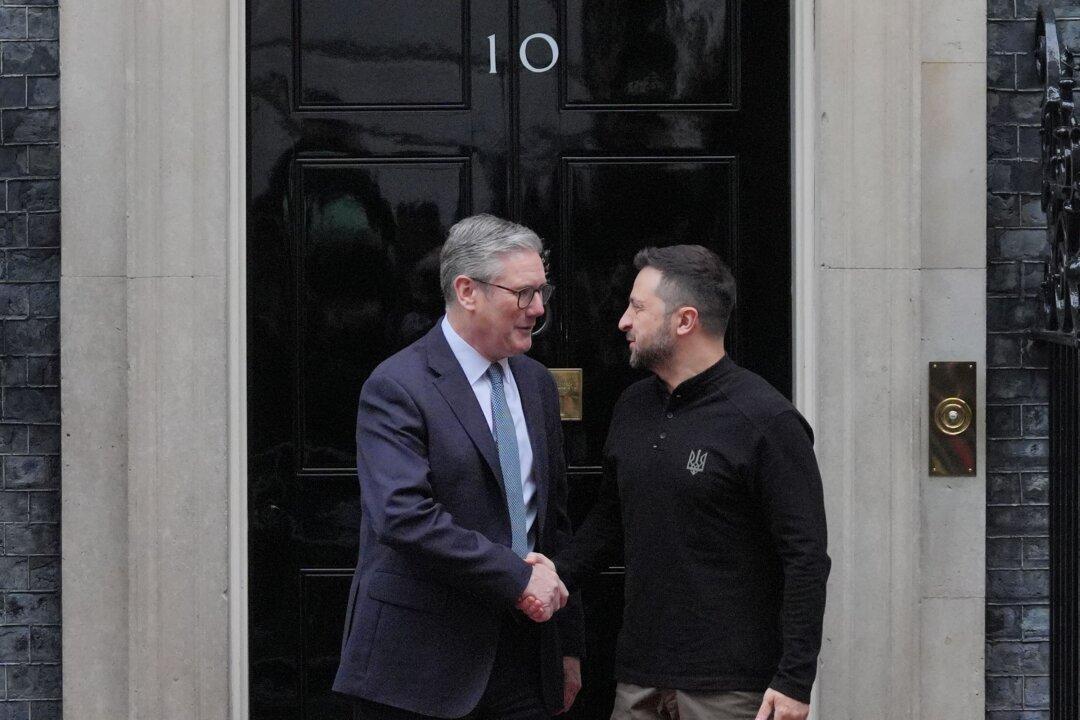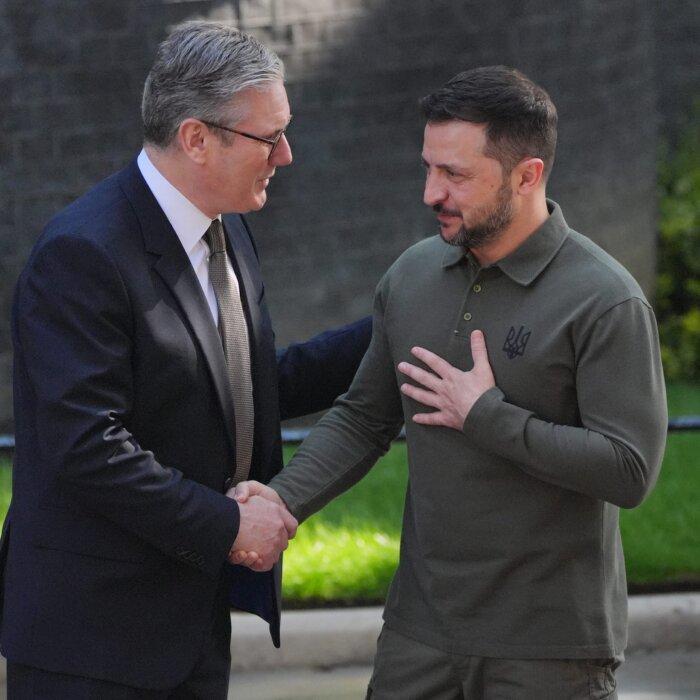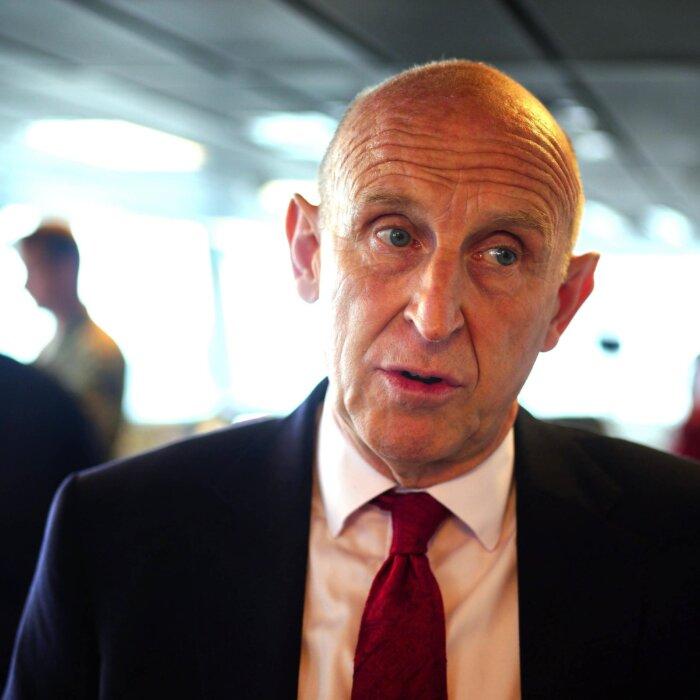Ukrainian Prime Minister Volodymyr Zelenskyy used a three-way meeting with Prime Minister Sir Keir Starmer and NATO Secretary-General Mark Rutte to again ask for permission to use long-range missiles in the ongoing war with Russia.
The UK government has so far refused to give its backing for Ukraine to use British-manufactured Storm Shadow missiles, with Russia warning of “consequences” if the conflict is allowed to escalate in this way.
‘Victory Plan’
Following Thursday’s talks in No. 10, Zelenskyy said: “The victory plan aims to create the right conditions for a just end to the war.“I thank the United Kingdom for its continued defence support of our country, including with long-range weapons.”
Zelenskyy has been pushing for permission to use Storm Shadow and other Western-supplied weapons to hit the Russian airbases and other military sites.
Thursday’s meeting was former actor Zelenskyy’s second audience at Number 10 in less than three months. In July, shortly after Starmer took office, the Ukrainian president became the first foreign leader to address the Cabinet in person since former U.S. President Bill Clinton in 1997.
Zelenskyy and Starmer met most recently at the United Nations in New York a fortnight ago.
Welcoming Zelenskyy into No 10’s Pillared Room, the prime minister said it was “very important we’re able to show our continued commitment to support Ukraine” and it was a chance to “go through the plan, to talk in more detail.”
The pair then held private talks in the Small Dining Room before conversations involving their wider teams.
UK Position Not Changed
Downing Street said on Wednesday that the UK’s position on using Storm Shadow had not changed.Rutte said that under international law, Ukraine would be allowed to use the missiles for defensive purposes.
He told reporters outside No 10: “First of all, that is up to the allies, the individual allies, to decide how weapons they deliver into Ukraine can be used.
“Legally that is possible because legally Ukraine is allowed to use its weapons, if they can hit targets in Russia, if these targets present a threat to Ukraine.
“But whether individual allies do, that’s in the end, (is) always up to individual allies. Of course, we discussed this. I was last week in Kyiv.
“We discussed it today, but in the end, it is up to the individual allies.”
Asked if he sympathised with Zelenskyy’s complaints that Ukraine having to fight with its hands tied behind its back as a result of the restrictions, Rutte replied: “Well, I think it is a bit more nuanced, because when you look at what the UK is doing, I think it is now £3 billion a year you guys are providing Ukraine with this military aid, with training.”
Other countries were also stepping up their support, he added.
“The whole of the alliance is in this, and let’s not focus on one system, one weapon system, it will not be one weapon system which will make the change,” Rutte said.
“So I understand what Zelenskyy is asking, but at the same time, he also agrees that there is a broader issue to be debated to make sure that they prevail.”
There Would Be ‘A Response’
The prime minister’s official spokesman said: “No war had ever been won by a single weapon.“The discussions that the UK, Ukraine and international partners are having are about all the range of support that we can provide Ukraine heading into the crucial winter months ahead.”Implications of Trump Win
Rutte said he was not concerned about the possibility of Donald Trump returning to the White House after next month’s presidential election, although this could signal a withdrawal of U.S. support to Ukraine.
The NATO leader said: “I’m not worried about that because I’m absolutely convinced that the U.S. is in this because they understand it is not only for Ukraine, but also for them, and that from Washington to San Francisco, the whole of the U.S. would be less secure if Putin would be successful in Ukraine.”
Kremlin spokesman Dmitry Peskov said following speculation about Storm Shadow missiles after a NATO meeting in July that there would be “a response” if the UK gave its permission for Ukraine to strike Russia with British weapons.
The Russia–Ukraine conflict began in 2014 when Moscow annexed the Crimean part of Ukraine and supported pro-Russian separatists fighting the Ukrainian military in the Donbas War.
The conflict escalated in February 2022 after Russian President Vladimir Putin launched a wider invasion of Ukraine following the failure of the Minsk Accords to bring peace to the region, where both ethnic Russians and Ukrainians live. Putin said he wanted to “demilitarize and denazify” Ukraine and to protect Russians in Donbas.
Both the Conservative and the new Labour government of the UK have offered continuing support and billions in funding to Ukraine, despite Starmer’s warning of a “£22 billion black hole” in the public purse.
The Thales weapons plant in Belfast received a significant boost through recent funding pledges to Ukraine, with a £162 million deal for a batch of its Lightweight Multirole Missile systems expected to be delivered by the end of this year.







